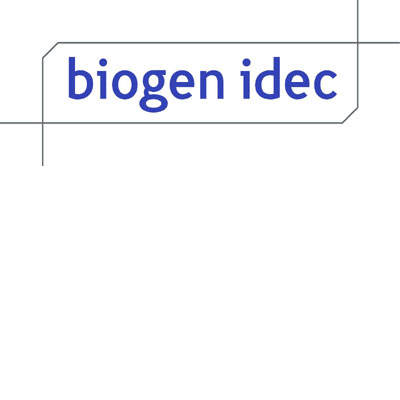The Lancet publishes SELECT study evaluating efficacy and safety of daclizumab HYP in multiple sclerosis
Posted: 4 April 2013 | | No comments yet
Results from the DAC HYP SELECT clinical trial…


Today Biogen Idec (NASDAQ: BIIB) announced that results from the daclizumab high-yield process (DAC HYP) SELECT clinical trial have been published as an online article in The Lancet. SELECT was a Phase 2b study designed to determine the efficacy and safety of DAC HYP in patients with relapsing-remitting multiple sclerosis (RRMS).
Published results demonstrate that both 150 mg and 300 mg subcutaneous injections of DAC HYP, administered once every four weeks, met the study’s primary endpoint by significantly reducing annualized relapse rate (ARR) by 54 percent (p<0.0001) and 50 percent (p=0.0002), respectively, compared to placebo at one year. In addition, results demonstrated that DAC HYP reduced multiple sclerosis (MS) brain lesions compared to placebo.
“DAC HYP represents the type of innovative research we are focused on cultivating as part of our MS pipeline because it potentially targets the disease in a new way,” said Gilmore O’Neill, M.D., vice president, Medical Research at Biogen Idec. “Based on these initial data from SELECT, we believe DAC HYP would complement our robust portfolio of four approved MS products by potentially offering people with MS a new treatment alternative. We look forward to continuing to work with our partners at AbbVie to progress the DAC HYP program further.”
Both doses of DAC HYP met key secondary endpoints in the study by significantly reducing the proportion of patients who relapsed at one year, as well as MS brain lesion activity, including the cumulative number of new gadolinium-enhancing (Gd+) lesions between weeks eight and 24 and the number of new or newly enlarging T2-hyperintense lesions at one year. Both doses of DAC HYP also demonstrated a trend in improvements in quality of life (QoL) compared to placebo as measured by the Multiple Sclerosis Impact Scale (MSIS-29) physical impact score.
“Because MS is unique to each person, we need a variety of treatment options to attack the disease in different ways,” said Ralf Gold, M.D., professor/chair of the Department of Neurology at St. Josef-Hospital/Ruhr-University in Bochum, Germany, and author on the manuscript published in The Lancet. “The results seen in SELECT suggest that DAC HYP potentially offers a new approach to treating people with MS.”
As a tertiary endpoint, SELECT findings also demonstrated that DAC HYP had a positive effect on slowing disability progression, as measured by the Expanded Disability Status Scale (EDSS).
The overall incidence of adverse events (AEs) and treatment discontinuations was similar in all study groups (79 percent placebo group, 73 percent DAC HYP 150 mg group and 76 percent DAC HYP 300 mg group). Serious adverse events (SAEs) over the course of the study, excluding MS relapse, occurred in six percent in the placebo group, seven percent in the 150 mg dose group and nine percent in the 300 mg dose group. Serious infections (2 percent versus 0 percent), serious cutaneous events (1 percent versus 0 percent) and liver function test abnormalities greater than five times the upper limit of normal (4 percent versus < 1 percent) occurred more frequently in the DAC HYP groups than in the placebo group. There was one death in SELECT due to a complication of a psoas muscle abscess in a patient recovering from a serious skin adverse event.
Detailed data from the SELECT study were also recently presented at the 65th Annual Meeting of the American Academy of Neurology in San Diego.
About SELECT
SELECT was a Phase 2b global, randomized, double-blind, placebo-controlled, one-year, dose-ranging study to determine the safety and efficacy of DAC HYP in patients with RRMS. SELECT evaluated two doses of DAC HYP: 150 mg or 300 mg administered every four weeks. The primary endpoint was the reduction in ARR in patients with RRMS at one year. Secondary endpoints included the reduction in the cumulative number of new Gd+ lesions between weeks eight and 24, the reduction in the number of new or newly enlarging T2-hyperintense lesions at one year, and the proportion of patients with RRMS who relapsed, as well as improvement in quality of life measures in patients with RRMS at one year. Additional endpoints assessed the safety and tolerability of DAC HYP.
The SELECT study analyzed 621 randomized patients, 18 to 55 years of age. Patients participating in the study were required to have RRMS per McDonald criteria 1-4 and a baseline EDSS score between 0.0 and 5.5, as well as either one or more MS relapses in the 12 months prior to randomization, or Gd+ lesion activity on a brain MRI within six weeks of randomization. Patients were randomized in a ratio of 1:1:1 to three treatment groups: 150 mg of DAC HYP (n=208), 300 mg of DAC HYP (n=209), and placebo (n=204).
Detailed results of SELECT are available in the manuscript “Daclizumab high-yield process in relapsing-remitting multiple sclerosis (SELECT): a randomised, double-blind, placebo-controlled trial,” which is available on the Web site of The Lancet at (www.thelancet.com).
About Daclizumab High-Yield Process
Daclizumab high-yield process (DAC HYP) is a subcutaneous formulation of daclizumab in late-stage clinical development for the treatment of RRMS, the most common form of MS. DAC HYP is a humanized monoclonal antibody that binds to CD25, a receptor subunit that is expressed at high levels on T cells that are thought to become abnormally activated in autoimmune conditions, such as MS. Data from previous clinical trials showed that DAC HYP increases CD56bright Natural Killer (NK) cells, which target the activated immune cells that can play a key role in MS without causing general immune cell depletion.
DAC HYP is currently being studied in the DECIDE Phase 3 clinical trial, which is evaluating the efficacy and safety of once-monthly subcutaneous DAC HYP as a monotherapy compared to interferon beta-1a therapy.
Biogen Idec is developing DAC HYP in collaboration with AbbVie, Inc.




